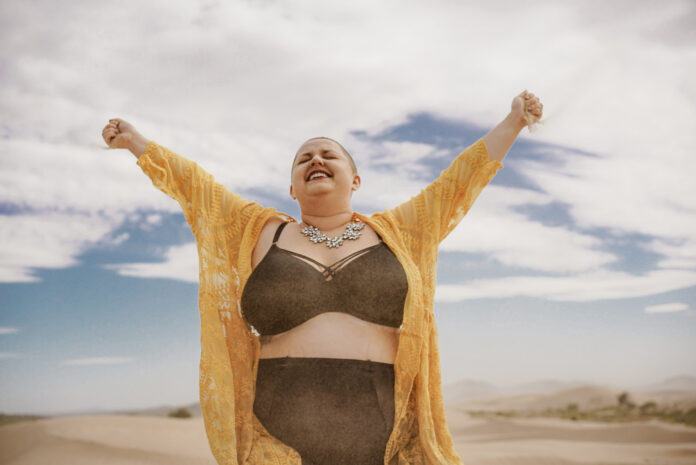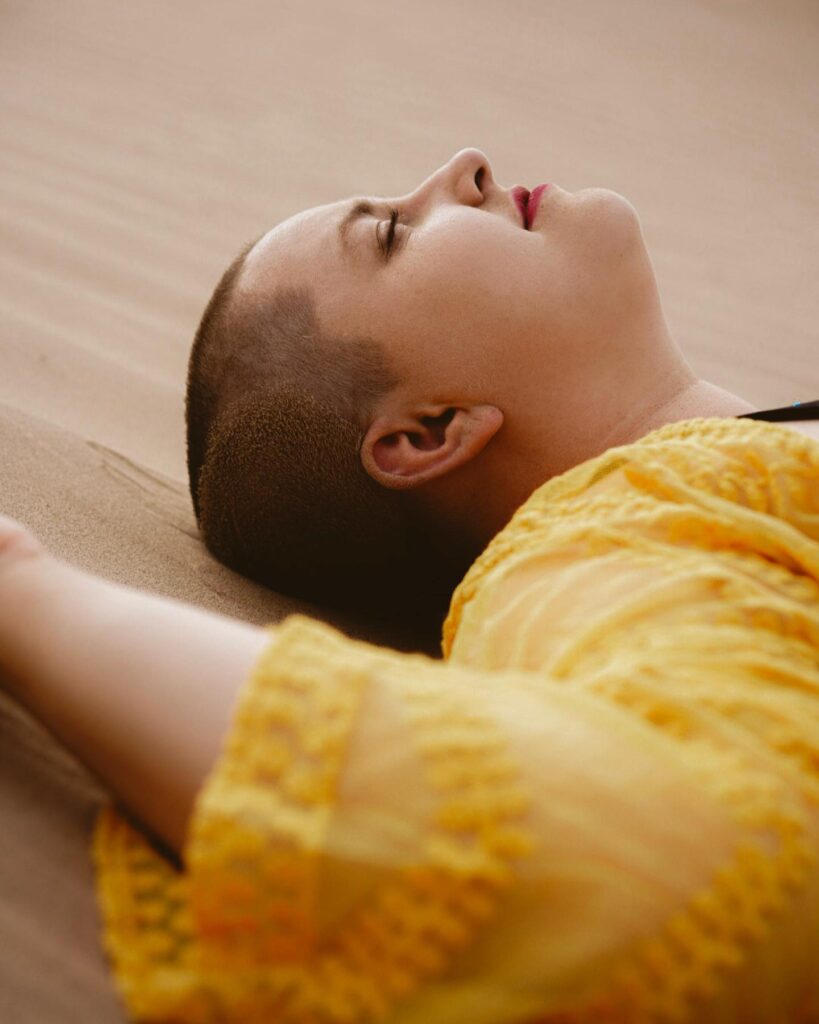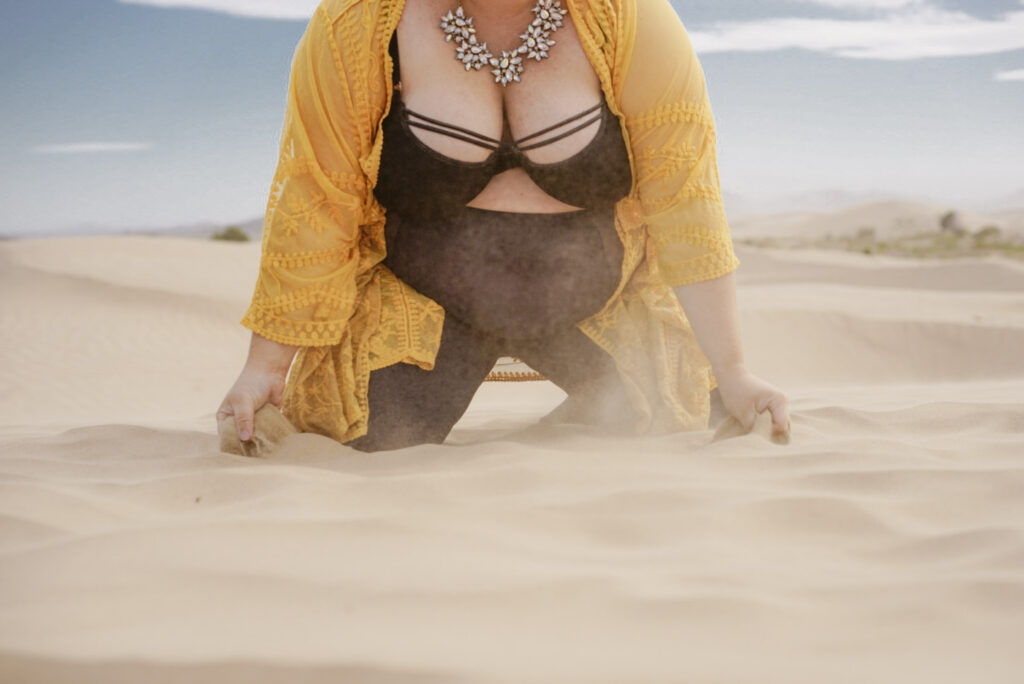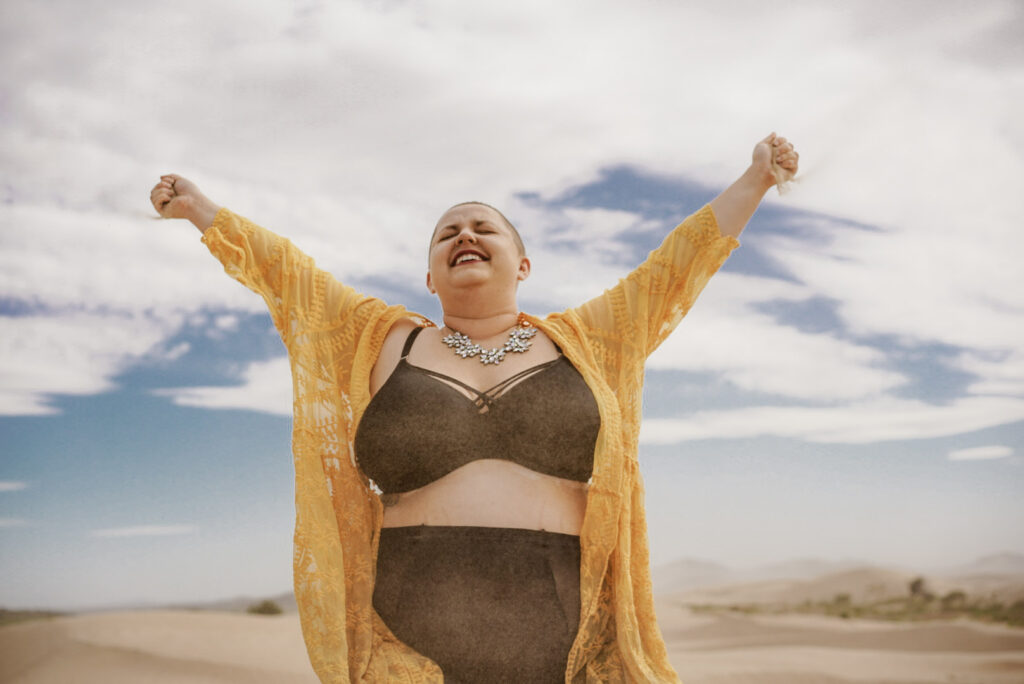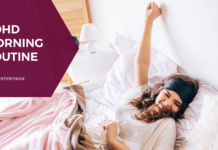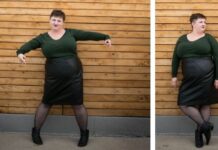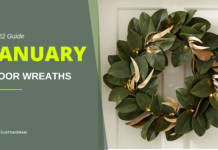Hey there! This post contains affiliate links. Using my links means I earn a commission, which helps me create more rad content. More on affiliates here.
Earlier this year, I did a photoshoot in Little Sahara with photographer, Brittney Okabe.
Brittney’s creative process FASCINATES me, so I interviewed them about her work. (Note: Brittney uses both “she” and “they” pronouns.) . If you’re a queer or marginalized person looking to do a photoshoot where you can fully see yourself, I 100% recommend working with Brittney.
[Heads up! This post uses affiliate links, and you help me earn $$ when you use my links. More on affiliate links here!]
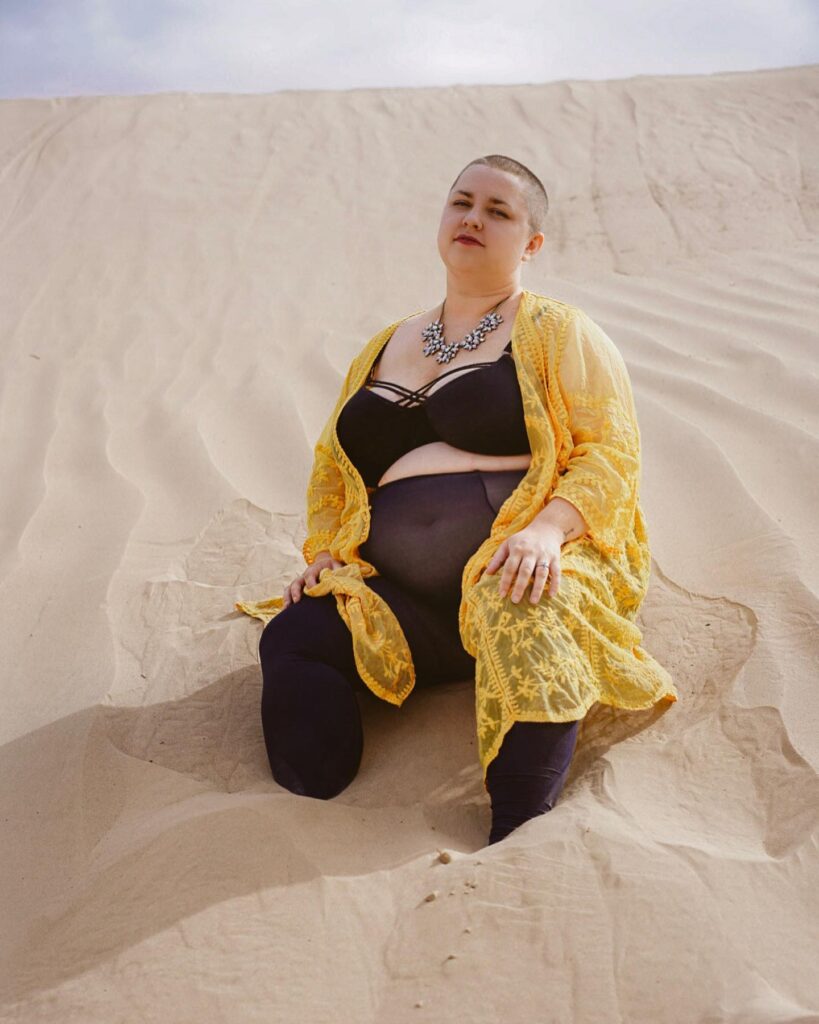
BH: When did you begin working as a professional photographer? What events in your life led to you deciding to pursue it as a profession?
Okabe: I have been shooting with a film camera for 15 years now! It’s been something that has shaped me and the way I experience the World and moments around me. I began to incorporate digital photography when I started working in a more “professional” context about two years ago when my partner and I decided we wanted to quit our jobs and travel with our dogs!
BH: How do you approach portrait work with new clients?
Okabe: I always like to spend the first moments together just chatting! I’m genuinely interested in people and their stories. Where they come from, what they feel has shaped them into the ethereal beings they are today. I feel like the more I know about someone, the easier it is for me to capture them accurately on camera.
BH: What type of camera(s) do you use in your portrait work?
Okabe: I love film, so when it works out, I like to shoot with my Olympus OM-1 35mm camera. I have a medium format twin reflex camera I like to use when conditions and lighting are prime as well! Along with these film cameras, I shoot primarily with my Sony A7rII which I absolutely love and have grown really fond of.
BH: I was super impressed with your kit, and I loved watching you select and work with different equipment for our shoot. Speaking of photoshoots, what types of images are you interested in creating?
Okabe: The kinds of images I am interested in creating really just depend on the kind of shoot I’m doing. I love creative and collaborative shoots so much! Those are the most fun and varied. Everything from moody, emotional images to bright and ambiguous!
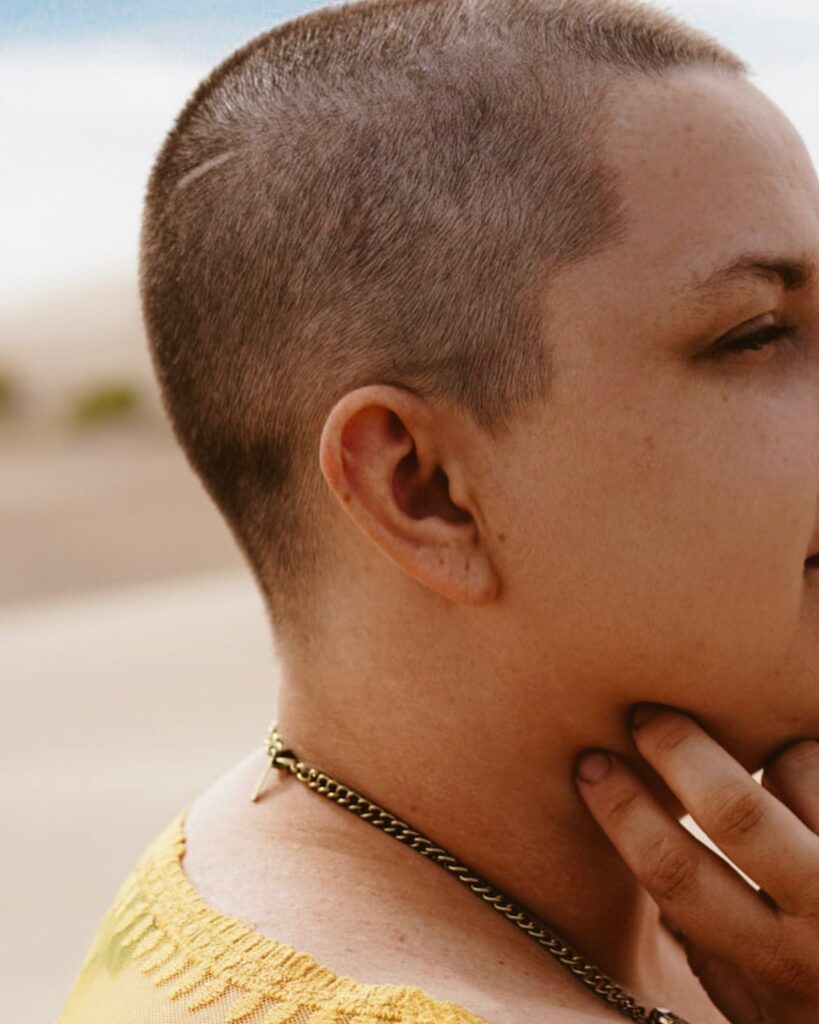
BH: Something I loved about shooting with you is how aware you were of my energy and comfort level. It went above and beyond consent, to an almost spiritual connection. Could you talk about how you’re intentional about your shoots?
Okabe: I think I touched on this earlier, but I really love to get to know the person who is allowing me to capture them. Photographing folks is such an intimate experience, I like to get to know things they like and don’t like about being in front of a camera and making sure that they feel in control, seen and supported throughout our time together.
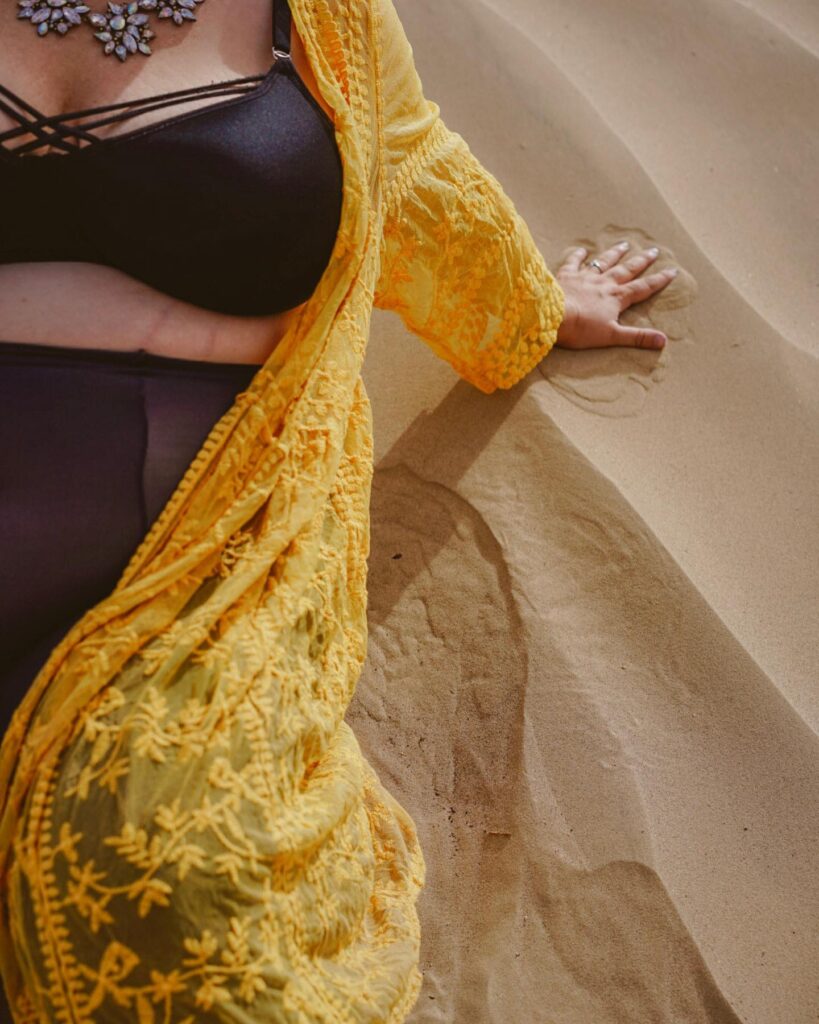
BH: Yes, that’s it! I felt very much in control. Sometimes I feel like the photographer is totally disconnected, which can be intimidating. Speaking of control and presentation, can you talk about how you show diverse bodies and why it’s important to you?
Okabe: Showing diverse bodies is crucial to dismantling ableist, cis-het, white supremacy culture and the toxic ideology that has been forced onto us since we were born. In order to unlearn these false narratives, we need to actively combat them by bringing visibility to folks from all sorts of lived experiences.
BH: You can’t see me, but I’m screeching “YESSSS!” Can you talk more about your creative process?
Okabe: My creative process really depends on where I am in any given moment. Generally speaking, it is always organic. I like to plan out a few concrete things such as a location, outfit ideas or general mood for the shoot. Other than that, I like to just see what happens when the chemistry plays out!
BH: I love that! I get a lot of questions from my readers about doing their own shoot, and whether they’re “allowed to.” Do people need to be a model or artist to do a shoot?
Put another way, why/how can a portrait shoot benefit people who aren’t often in front of a camera?
Okabe: Folks definitely do not have to be a model or even comfortable in front of a camera to do a shoot! I love working with folks who are typically shy in front of a camera because it is so powerful to help them feel safe and realize how truly beautiful they are when they see the finished product.
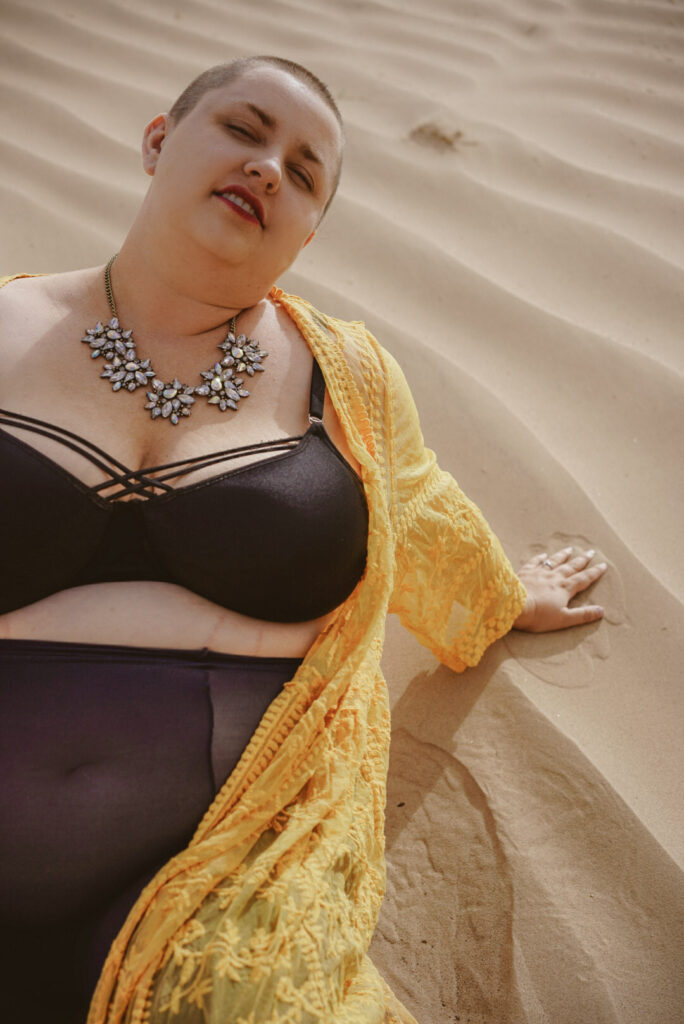
I feel like because I still struggle being in front of a camera, I understand what it feels like and the kind of anxiety that it can sometimes create. That being said, I also truly love seeing an image of myself and thinking “DAMN!” on the inside. It is so crucial to feel good about ourselves because we live in a capitalist society that constantly tells us we can always be better. I reject that and hope to have a body of work that one day can also reflect that. I want us to all crush on ourselves more!
BH: I love that! Can we talk a little bit about our shoot? Why did you want to shoot in Little Sahara?
Okabe: I have literally always wanted to shoot in sand dunes. So different from the redwood forests and beach environments I grew up in.
BH: Love that! I really appreciate photographers who choose more difficult or adventurous places. Something I’ve notiecd about your work is that you use a lot of fabric/floaty materials in your work (like the yellow shawl). Why do you like this type of piece/costume/look?
Okabe: I love to capture movement in shoots. I especially like capturing movement created by whatever environment I am shooting in. I think variation in fabrics and movement can create such intense emotions and a feeling of being in that moment.
BH: That is incredibly powerful. Let’s talk a little bit more about you. You’re currently traveling the US in a van with your partner. What made you decide to do this? How long did it take to prepare?
Okabe: Traveling with a partner has been my dream for about a decade now. I’ve never been the kind of person who enjoys traveling alone. I’m not sure why, I just love sharing my experience with someone! I finally met my person! The person I can see myself spending my life with. Feeling confident that we would be able to work through hardships and problem-solve together was crucial for me in taking this step.
We prepared and saved up for a year, bought and built out a van, quit our jobs and hit the road!
BH: Final question: How does your identity interact with your work?
Okabe: I spent my formative years in Oahu, Hawai’i. Being Japanese, I was surrounded by folks who looked like me and came from similar cultural backgrounds as I did. It really felt so comforting and safe to have community and solidarity in that way. Once I picked up a camera at the age of 14, I took it everywhere with me. Every show my friends played, every beach trip and day spent wandering the city. I learned to love capturing those moments and getting the film developed. When I was 18 and moved to California, I feel like I lost some of that familiarity and community. I slowly felt less inspired to take my camera with me places and doubted my creativity.
Recently, I feel like I have found my home. Both in my community and in a place. Portland, OR has been a place where I have found my creative voice again. Creating images with people who inspire me and making connections between my ideology and body of work has been healing. I’m so thankful to everyone who has and will step in front of my lens. Thank you for sharing yourselves with me.
Booking a Photoshoot with Brittney Okabe
$150- 1 hour + at least 15 images
$300- 1-2 hours + location/concept/creative collaboration + at least 30 images
Sliding Scale
***In an effort to help meet the needs of my community, I am implementing a sliding scale policy on all of my photography services. My current pricing structure is based on my need to be fairly compensated for my time and energy while also providing affordable session rates. While this is true, I also want to ensure that there is accessibility to my creative energy and services for everyone who is interested and I am experimenting with discounted rates to help make that possible. Please review the guidelines and know that this scale is intended to be a starting point, inviting each of us to take inventory of our financial resources and look deeper at our levels of privilege and financial security. It is a small way to challenge the classist and capitalist society we live in and an effort to work towards a more equitable reality. It asks us to deeply evaluate and consider more than just income level. While I ask you to take these factors into consideration, please don’t stress about it. Pay what feels right. I will not ask questions or quiz you on your payment choices!
For more a helpful list on where to pay on the scale, please contact Brittney directly!
Wow, I loved working with Brittney! If you’re looking for an LGBTQ+ friendly photographer, be sure to follow them on Instagram!
